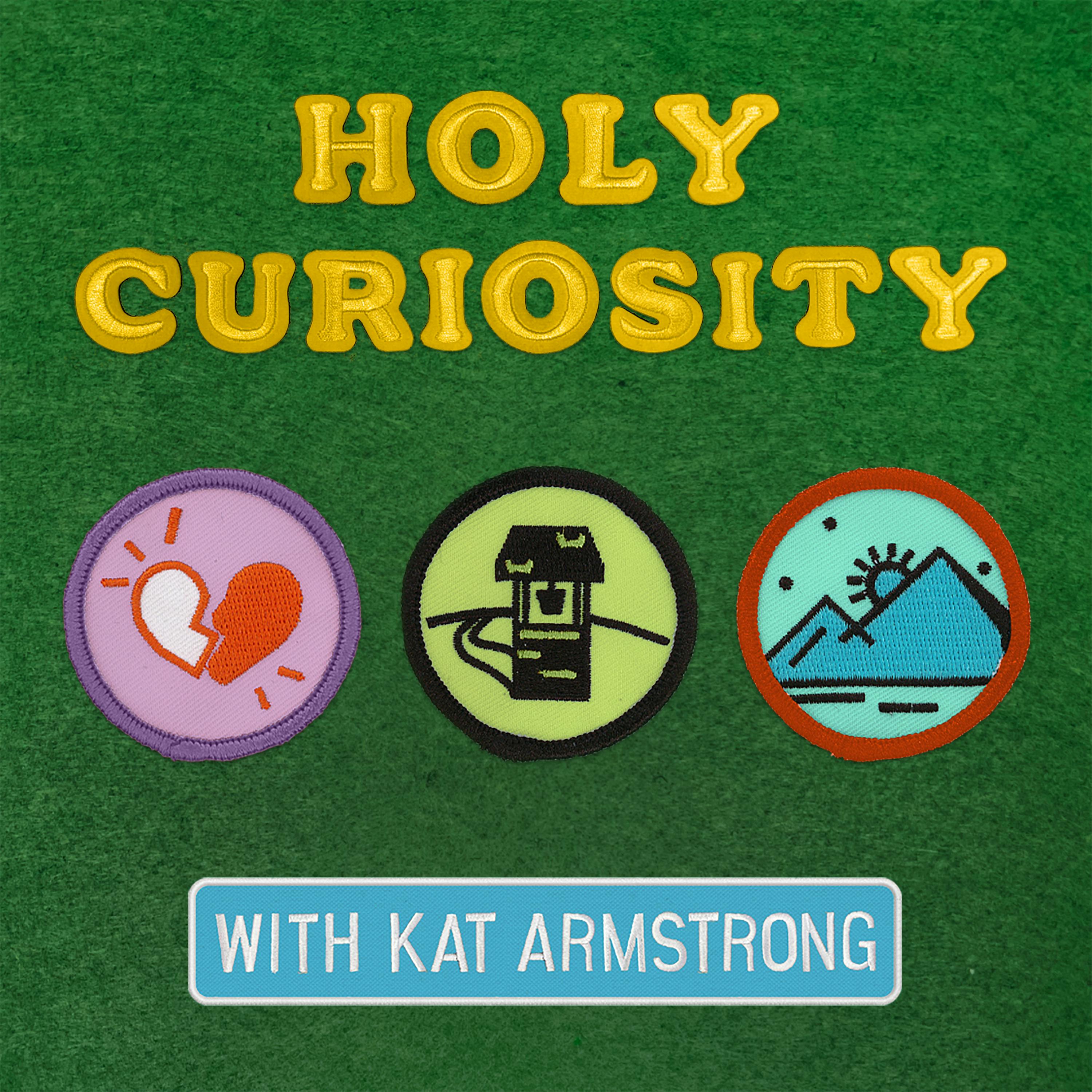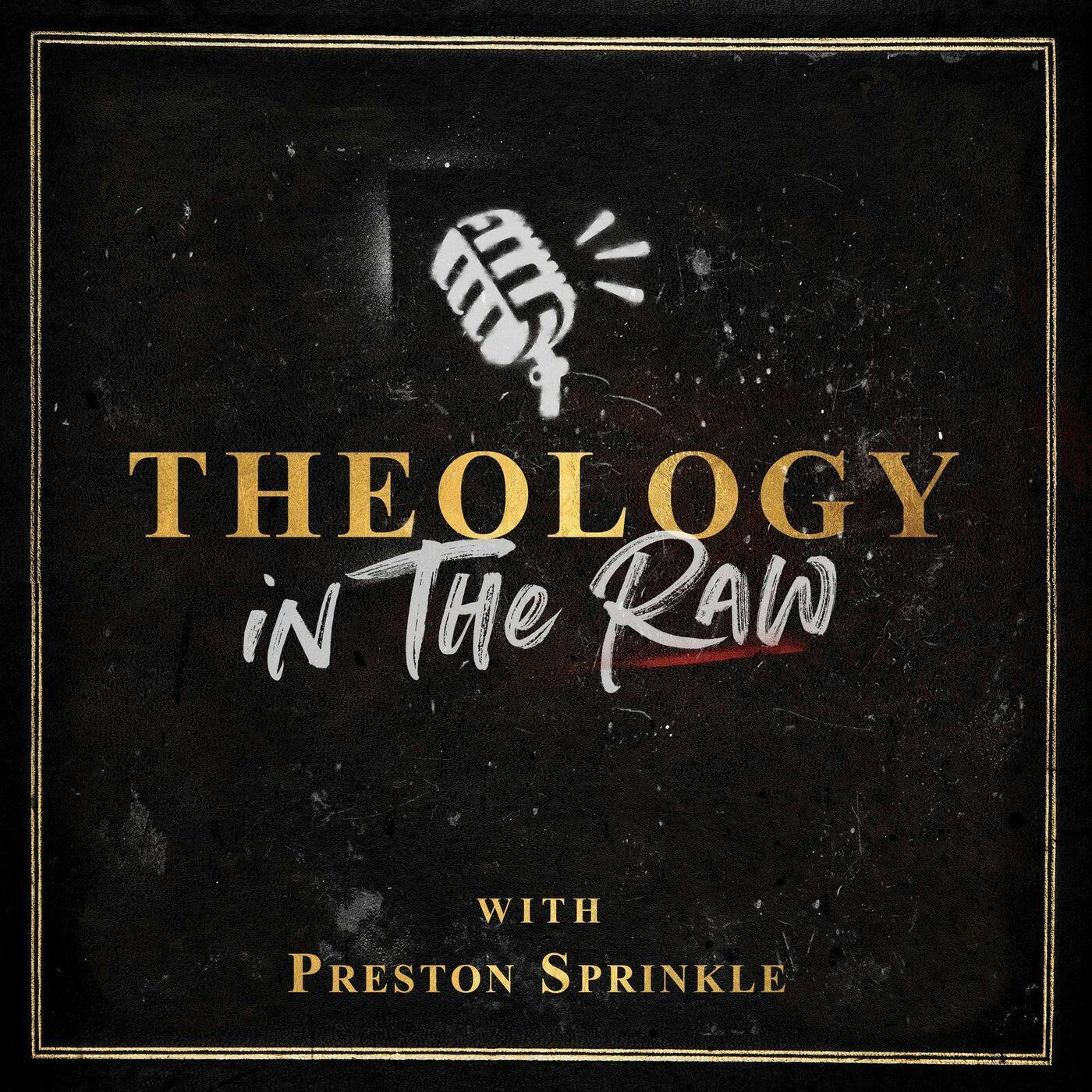
Slow Theology: Simple Faith for Chaotic Times
Dr. A.J. Swoboda and Dr. Nijay Gupta are co-hosts of Slow Theology: Simple Faith for Chaotic Times. We talk Bible, theology, and anything and everything else under the sun that gives our lives meaning.
Slow Theology: Simple Faith for Chaotic Times
ST1: Introduction to SLOW THEOLOGY
Friends, AJ and Nijay have an exciting update. We are transitioning the podcast into a new era with a new title: Slow Theology: Simple Faith for Chaotic Times. The podcast will still talk about the messy of real life, but we will broaden topics to cover how to build a healthy faith in community. Same hosts, same content with more, and we have a new planning schedule that will mean more consistent content on a weekly basis. Thanks for continuing on the journey with us!
Well, we are back after I think it's been, it feels like it's been nearly a decade Nijay since we have been in the studio together. But AJ Swoboda here, I'm with my dear friend, Nijay Gupta and we have some really exciting. Big news for our listeners today. Um, it sounds like a Kmart special. We've got a, we got a sale, some, some, some excitement in the, in the room.
You can feel it it's palpable. Um, so for the last couple years, Nijay, you and I have. Uh, hosted a, what we both thought was a very timely and important podcast conversation, uh, or title of our podcast has been in faith and doubt. And we are now coming together, um, for a new season. It's, it's, it's a new moment in the life of our work together.
And we, uh, we have some cool news to share, and that is that we, uh, first we are changing the name of our podcast, uh, and our new name of our podcast. We are calling slow. The. Slow theology. Uh, the subtitle for our podcast is simple faith for chaotic times. And the big idea is we are moving away, not from the conversation about Dow and deconstruction, but we're broadening the conversation.
Uh, and we're, we're basically. We're opening this up to a whole new, uh, a whole new level of conversation. And we're gonna have conversations that span greater than just conversations about doubt and deconstruction. Um, when we were talking earlier, uh, today, NJ, you used a really beautiful image that actually to me, as you shared, it really captures why we're doing this.
Uh, so tell us about.
Yeah, I am really excited about, um, kind of taking the podcast, uh, to, to a broader level. Um, you know, when AJ, when you and I started the podcast and faith and doubt, this came out of your book, which is excellent. I recommend it all the time after doubt, if you haven't, uh, you listeners and viewers, if you haven't, um, Picked up the book it's, it's spectacular.
And I remember reading that book and, and talking to you, AJ about it and saying, you know, there's so many people that are hungry for processing. There are frustrations hurt and doubts, related to religion related to the church related to the Bible, um, Christian leaders that have let them down, uh, the analogy that I, you know, of for what.
In faith and doubt provided people is kind of like, you know, a few years ago I broke my foot. Um, I wish it was a fun story of, you know, uh, fighting off, uh, robbers or something. But I actually just tripped out to take the trash out. Uh, I broke my foot and, um, there was a period there where I had to.
Manage this break. And I had to, to help seek healing for it, by doing all kinds of stuff, ice and rapping and stretches. And kind of feel like work we do processing doubt and deconstruction is like treating something that's broken and you have to, you have to focus on the break. But then once the foot is technically healed, you know, the, the, the, the bone is fused.
You gotta learn to walk again, right? It's not just enough to kind of, it's actually worse for you. If you leave that foot up, it's gonna put you literally off balance. And so I think about the new phase that we're going into with this podcast, um, we're not moving away from questions about faith and doubt and the mess of real life, which is kind of the tag.
From that podcast, but now we're really addressing, you know, there are a lot of people that have been following us on this journey of, in faith and doubt and your book after doubt, are, um, to heal from the hurts. And I've talked to so many people, AJ who've said I'm, I'm wanting to put a toe back.
To church, I'm wanting to open the Bible again. I'm wanting to reset my faith, my life. Um, I've talked to so many people who are, who were on the brink of being done and, um, something, and maybe it's our podcast. Maybe it's a good book. Maybe it's a friend. Pulled them away from the edge. And now they're wanting to reconnect with Jesus, reconnect with the church, reconnect with their faith, uh, reconnect with the earliest experiences of their faith.
And so I'm hoping this next era, which we are titling slow theology. Is going to help people on that journey to, to say, okay, how do I start over? How do I, you know, I think about like a marriage and my wife, you know, I've never gotten to the place where we've been on the brink, but we've had ups and downs and sometimes we have to go back to basics, know, go on a date. Just talk to each other about what we like about each like really simple, basic things that kind of take you back to the beginning. You and I have talked before about recruit's, uh, theory of second naivete. Being naive is bad. You don't know things. Then you learn complexity, but living in complexity only sometimes lead to despair, sometimes indecision.
And then there's the second where you say I've learned all these things. I've seen the ugliness of the world. I've seen the messiness of the Bible, Christian faith, and yet I still want to walk simple way.
Yeah.
Um, that's what I'm hoping will come out of slow theology. What, what are your hopes, AJ for the next era of this podcast?
Well, I, I like the, the imagery of almost the way you described the broken foot. It's almost a triage to our faith. Like there, there, there are seasons where. Um, be it, you know, a variety of things happen to us. We experience loss or transition or people that we used to trust or major, major church, heart, or whatnot, where it really is triage.
I mean, it's day to day, you're putting bandages and whatnot on the bleeding, you know, wound that you've just experienced, but we don't, you know, if you live too long in triage, if you live too long in the ICU, You know, it, you can actually develop a whole nother set of diseases. Uh, you know, like, you know, you can, you can get a whole, you know, variety of other things just by being, you know, ill too long.
And I think, I do think the goal is we never set out, uh, to create a podcast that would enable wallowing and would a nail just sort of sitting and, and, and not getting back up. We want people and have always wanted people to be able to walk through the healing process. And keep following Jesus, that's the goal.
Um, and I think that this iteration, uh, moving towards, so theology is a small part of that. Um, let's start getting you to walk around a little bit. Let's, let's get you back, you know, on the treadmill. Let's get you to keep moving forward, uh, in, in your faith. And so my hope NJ is this is, is, is that we don't enable wallowing.
We want, we want to. And then continue to live the life that God has given us, uh, to live as I was even reading this morning. The, uh, and thank you. I know NJ you and I both would always want to thank the people that both. Listen and rate you know, share the podcast. And we have both been beyond blown away at the receptivity that people have that we've had in this, the, the audience.
But as I read through those, uh, those points of feedback, people who, who are naming like. This is this that what you've been doing has like literally been a lifeline for me, for my wife, for my family, we need more. And I think both of us have felt like in the last, you know, six months of not publishing or four months or whatever, it's been that actually this is a real need.
And I think when you, when you look at some of that, that feedback, you recognize my goodness gracious. Like. the, the having voices that, that, that do the, this kind of work is, is, is really important. So that's what we're doing. Slow theology, not stupid theology. But not fast theology, either like slow, intentional, um, theology that is centered on the ancient way of Jesus and does not obey the adrenal gland, the right a theology that is like, no, like we, we follow Jesus.
We don't follow. Uh, our feelings, we don't follow our emotional state. We don't follow our adrenal gland. We are slowly pursuing the way of Jesus. And so we have fun things ahead, uh, in this next, uh, iteration. And it's a joy for those of you that have been with us through in faith and doubt. Um, thank you for joining us for this next part of the journey.
Yeah, we want people to stay, stay with us. Um, you know, as topics arise in the news and things that AJ and I are working on our research, or when we're speaking at churches, um, you know, we will continue to talk about. Issues related to doubt because it's just a part of life. The whole point of faith and doubt was Christian life.
Faith has both faith and doubt so that, that part's not gonna go away, but we, we do wanna be intentional about building step by step. Um, I I'm especially thinking AJ about the person that says, you know, it's, I've been away from church for a few years. um, I want to get connected again. I want to talk to Jesus again.
How can I make those first few steps? And what we would say is take 'em slowly take 'em together, take 'em with, with faith, hope and love. Um, and that's, that's what we're about. So yeah, definitely excited. We, we have some good, topics planned for the future. So please, stick with us.
Yep. Awesome. Nej it's so good to be with you and, uh, to, to move forward. And we got fun ahead of us. So everybody. Thanks for listening. And, um, here, here it come put on your seat belts, baby.
Buckle up.
Podcasts we love
Check out these other fine podcasts recommended by us, not an algorithm.

Holy Curiosity with Kat Armstrong
Christianity Today
Theology in the Raw
Theology in the Raw
The Holy Post
Phil Vischer
Engaging Scripture: Conversations in Biblical Studies
Nijay K. Gupta
Park Hill Church Podcast
Park Hill Church